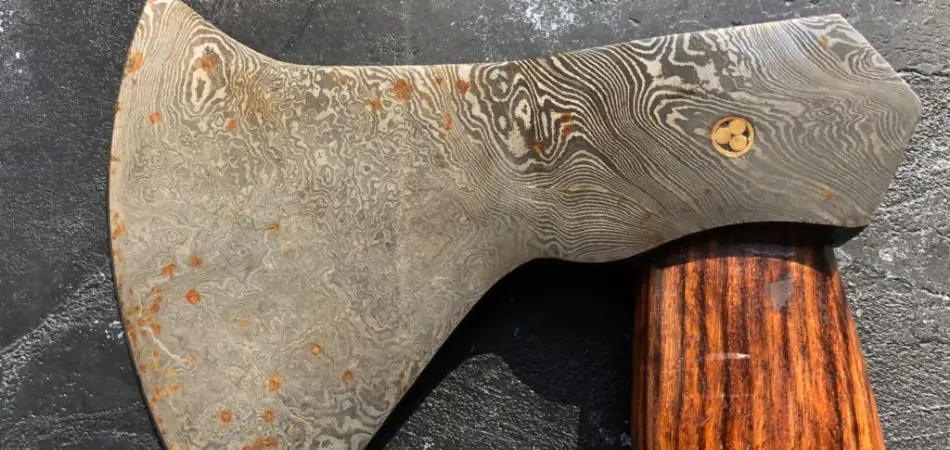Forged steel is different from other kinds of steel in appearance, strength, and other major factors. It is rougher in grain and molecular makeup than stainless steel, which is usually cast and polished. However, does forged steel rust easily?
Yes, forged steel does rust, although it takes longer to rust than normal steel. Forged steel is commonly utilized because it incorporates the resilience of steel with a higher level of resistance to heat and corrosion. It can also withstand stress and pitching to a great extent.
These differences are a result of the manufacturing process of forged steel, which is designed to make the steel stronger.
Also, Forged steel must be treated and coated to prevent rust from forming. A protective coating of enamel or other finish also gives forged steel, such as wrought iron railings, the attractive look it is known for.
With the information below, you will find out more about forged steel, its usefulness, how to prevent rust and remove rust from it.
Contents
What Is Forged Steel?
Forged steel is produced by hammering steel or forcefully manipulating steel in place. This process straightens out the grain of steel in a single direction, thereby strengthening this material through this strong process. Forged steel is less susceptible to deforming and breaking under pressure. Alternately, forged pieces are often engineered from a solid block or cast, retaining much of the resilience of the original forged piece.
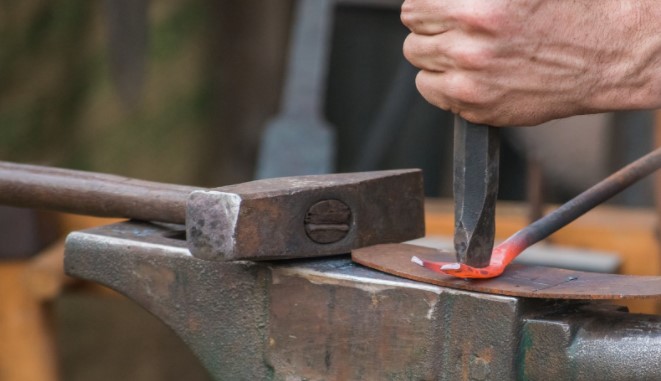
As a result of these qualities and modes of preparation, forged steel is usually found in industrial or other heavy-duty applications due to its heightened potency and lack of embellishing preparations. Large sections of forged steel must be welded together since there is a limit to the continuous sizes that can be made. This is as a result of the extreme pressures applied on the steel to hammer or press it into shape.
What Are The Advantages Of Forged Steel?
Forged steel provides a wide range of benefits. These include;
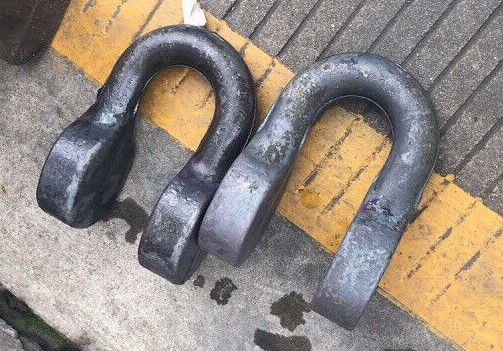
Protective Oxide Layer
Forged steel contains a protective layer of oxide that helps in corrosion assistance. Forged steel resists stress cracking, pitting, deformation, crevice corrosion, and other dangers that can shorten the lifespan of ordinary steel.
High Level Of Resistance To Corrosion
Forged steel gives room for prolonged exposure to corrosive environments such as pumps, chemical processing equipment, valves, petrochemical processing equipment, and marine equipment.
High Resistance To Heat
In instances where forged steel is used for heat exchangers, ovens, and furnaces, it maintains extremely high heat resistance qualities.
Strength
Forged steel is generally stronger than other forms of steel because the grain flows of the steel have been altered in the process of conforming to the shape of the part.
The tight grain structure of forging also increases its mechanical strength, there is, therefore, less need for other expensive alloys to increase the strength of its components.
The forging process takes away the occurrence of porosity, cold pour issues, cavities, and shrinkage. Due to this strength, forged steel will handle stronger impact better.
What Are The Types Of Forged Steel?
Forged steel can be classified into three different categories based on the forming temperature.
1. Hot Forged Steel
The forging temperature for hot forged steel is between 950°C and 1250°C, which is above the recrystallization temperature. Hot forged steel often requires low force and pressure to hammer into shape and results in good formability.
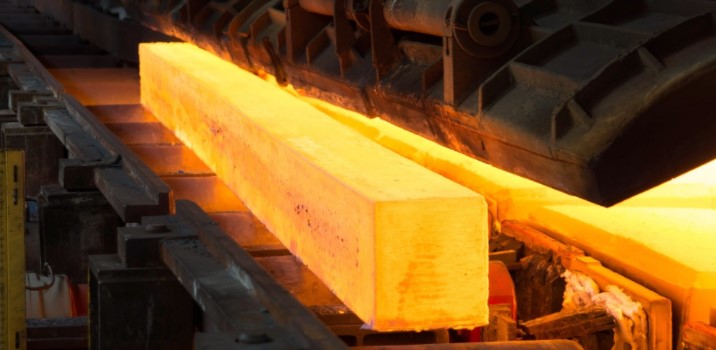
2. Hardened Steel Forging
The forging temperature of hardened steel forging is between 750°C and 950°C. This temperature often results in a limit of the steel’s ductility and requires higher forces and pressure to form than hot forging. Its major advantage is that it is in between hot forging and cold forging which offers great versatility.
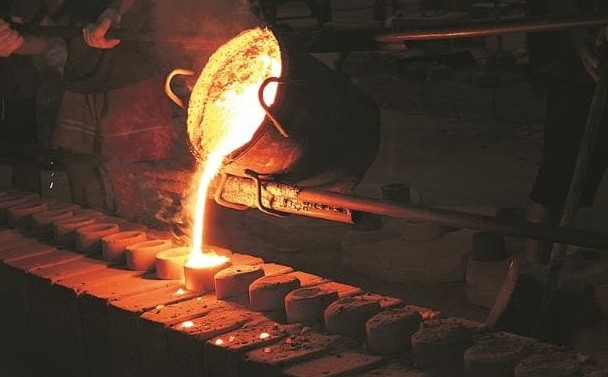
3. Cold Forged Steel
The forging temperature of cold-forged steel is often carried out under “room temperature” of about 150°C. This type of forging which often results in very low formability most often more than not requires high forming forces. It has the great advantage of allowing better material conservation and a better surface finish.
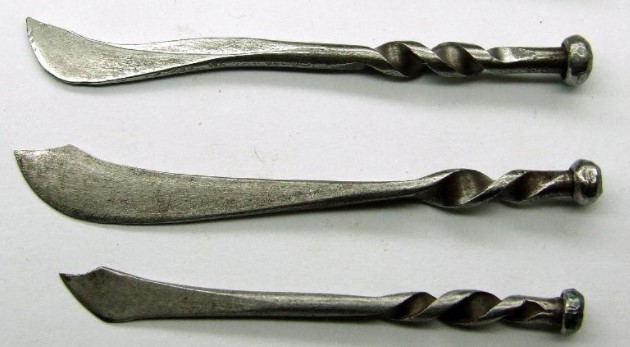
What Is The Difference Between Forging And Casting?
Forging and casting undergo two different methods of manufacturing. When steel is cast, it is heated above its melting temperature and then poured into a mold where it solidifies as it cools.
Forged steel however is physically forced into shape while remaining in a solid-state although it is heated from time to time.
How Can You Differentiate Forged Steel From Cast Steel?
The best and most viable way of recognizing forged steel is to look for the parting lines on the counterweights. Forged steel will have an irregular, wide rough patch while cast steel will show a well defined and very sharp line where the mold has been separated.
How Do You Prevent Forged Steel From Rusting?
To prevent forged steel from rusting, beeswax is applied to the metal object and it is then heated to about 300 degrees over a coal forge, with a torch, or sometimes in the oven. This removes the moisture from the steel without it getting too hot to the extent of burning the beeswax or pulling unwanted colors to itself.
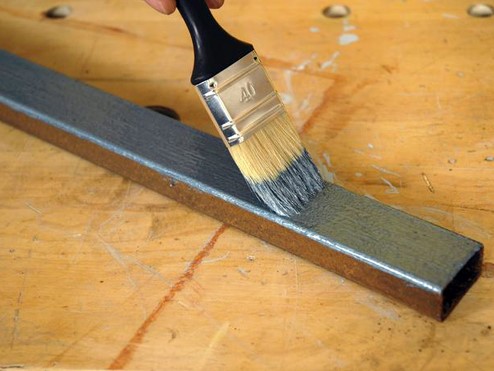
While the metal is still hot, another layer of beeswax is then applied and brushed over the metal and the excess beeswax is buffed away. The wax penetrates the pores of the metal and seals the object against rust. It also gives the metal a lovely deep glow, accentuating the shadows and nature of the metal.
Also, a mixture of beeswax, mineral spirits, and linseed oil can be used to prevent rust on forged steel. A mixture of these makes a paste that can be readily applied with a rag without the need to first heat the steel.
Final Thoughts
Forged steel can rust, although it takes a longer time to rust than other types of steel. Due to its high level of tensile strength, forged steel is the most commonly utilized type of steel.
To prevent forged steel from rusting, beeswax or mineral spirit can be applied from time to time under heat. Forged steel is known to withstand pitching and stress to a high extent.

